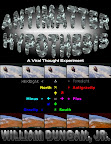Establish task force commissions with targeted objectives.
The traffic congestion problem space is too vast to attack on a single front. Divide and conquer is a tried-and-true approach that turns big problems into smaller, manageable ones of narrower scope. Identifying and isolating specialized categories improves the chances of success. Task forces contain the tools to tackle clearly defined objectives: compartmentalized congestion relief goals. For each autonomous task force, guidance is encapsulated in its mission statement - its marching orders, which are the means to govern control and feedback.
Empowerment Task Force: The mission is to advance the vision and goals of congestion relief in the public interest.
Mobility Task Force: The mission is to reduce trip distance and frequency in the public interest.
Optimization Task Force: The mission is to improve our transportation system operating efficiency in the public interest.
Ride Sharing Task Force: The mission is to increase vehicle occupancy in the public interest.
A term format gives each task force chief authority, responsibility, and independence, within defined task force constraints; and accountability, to taxpayer investors. Participatory democracy must be encouraged. Public scrutiny and criticism come with the job. The overall intent is to attract public servants of conviction and sound judgment to serve as task force chiefs.
The primary duty of each task force is to prepare proposals and manage contracts that support the task force mission statement. Stated proposal objectives must be specific and measurable. Proposals must be posted on the Internet and open to criticism. Each task force solicits and evaluates contract bids on its own proposals. Freedom of information is honored and encouraged. Funding competition will take place between proposals. A majority approval of the joint chiefs is required to fund a proposal - subject to available tax funds, of course.
Upon proposal approval, a contract will be awarded and the performance monitored by its originating task force. Contracts must have a limited duration, not to exceed the term limit of the task force chief. As politicians face competition at term boundaries, contracts and contract renewals should be open to competition too. Winners must not be decided by lowest bid alone, but by cost/benefit analysis that takes into account experience and quality issues – the way a savvy investor decides.
Each task force chief manages an independent budget. Task force budgets are approved by a majority of the joint chiefs. Within their budgets each task force is allowed a small permanent staff not to exceed seven in number. The small permanent staff restriction concentrates attention on task force goals and inhibits bureaucratic growth. Permanent staff members perform duties that help create task force policy, generate proposals, solicit and evaluate bids, cost/benefit analysis, award contracts, contract overview, prepare semi-annual reports, etc.
Each task force has an obligation to pursue matching grants. A lone funding source attracts predators and parasites, until it is depleted and dies. Joint funding spreads costs and permits a wider range of proposals to be considered for implementation with outsider checks and balances. It also increases the visibility of task force causes at the community level, at the state level and nationally – ensuring survival of congestion relief goals.
Each task force must publish a semi-annual report on the Internet. It must include or contain links to its balance sheet, the task force mission statement, philosophy and policies to meet its task force objectives, accountings of proposals and contracts, measures of progress, a timeline of significant events, any mid-course corrections, and future projections. Open proceedings and close scrutiny are essential to providing an accurate and meaningful accounting.
Open Competition: A forum must be open to public debate, through the Internet and town meetings, to attract the best, worst and wildest ideas imaginable. Each Task Force then filters through this treasure of ideas to generate proposals relevant to their mission statement.
Mortgage Crisis Solution
13 years ago









No comments:
Post a Comment